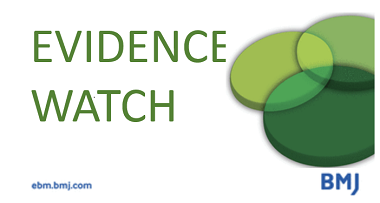“All evidence, especially our lifelong population-based data, point towards a substantial unmet need for treatment of mitral regurgitation.”
Jack O’Sullivan
Despite being the most common heart valvular disease, it is unclear how often patients with mitral regurgitation are treated. This is concerning because early treatment is beneficial [1]. A recent study, published in the Lancet, set out to determine how common mitral regurgitation is and how many patients get effective treatment.
What did the study authors do?
The authors assessed the electronic health records in Rochester, USA (Mayo Clinic) from 2000 to 2010 to determine the prevalence of mitral regurgitation, and how frequently these patients get the appropriate treatment.
What did the authors find?
Mitral regurgitation is rare – the prevalence is around 0.6% in adults – and, unsurprisingly, it is a risk factor for premature death (risk ratio (RR) 2.2). Perhaps more surprising is that mitral regurgitation is associated with higher mortality in the presence and absence of heart failure.
Valvular surgery, considered by the authors as “the only approach recommended”, was performed in only 15% of patients. The authors drew particular attention to this finding; their conclusion is: “All evidence, especially our lifelong population-based data, point towards a substantial unmet need for treatment of mitral regurgitation.”
Implications for clinical practice
The authors conclude that mitral regurgitation is undertreated and suggest that patients need to be referred to cardiology teams earlier. They also suggest that, given the poor uptake of surgical treatment, alternative strategies need to be developed to treat mitral regurgitation.
Reference:
Outcome and undertreatment of mitral regurgitation: a community cohort study. Dziadzko V, Clavel MA, Dziadzko M, Medina-Inojosa JR, Michelena H, Maalouf J, Nkomo V, Thapa P, Enriquez-Sarano M. Lancet. 2018 Mar 10;391(10124):960-969.
Jack O’Sullivan, Editorial Registrar BMJ EBM, Dr & DPhil Candidate at the University of Oxford
Conflict of interest: My DPhil (PhD) is funded by the Clarendon Fund, University of Oxford. I also receive income from Oxford University Hospitals for clinical work and hold grants from the National Institute for Health Research and the Primary Care Research Trust. I have no conflicts of interests.

BMJ Evidence-Based Medicine – original evidence-based research, insights and opinion
Read more about BMJ EBM content in the Welcome to BMJ Evidence-Based Medicine Editorial.
